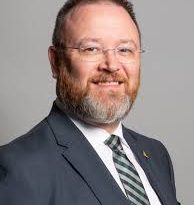Philip Goodhart – 1985 Speech on the Televising of the Commons
Below is the text of the speech made by Philip Goodhart, the then Conservative MP for Beckenham, in the House of Commons on 20 November 1985.
My instinctive belief is that we should be cautious about letting the cameras into this debating Chamber. My view was powerfully reinforced on the evening before the House of Lords television experiment began when I watched a trailer for the next day’s debate. There were three scenes on the trailer.
There was a picture of an American Congressman going mad. We moved from Washington to the Floor of the Bundestag in Bonn. We did not see a great speech by the German Chancellor. Instead, we saw a riot by the Green party. We moved from the Bundestag to the European Parliament. There was a picture of our own dear Les Huckfield, whose microphone had been cut off because he had breached a rule of European parliamentary etiquette—he had pulled out a loud hailer and was addressing Members of the European Parliament, who looked somewhat bemused. Clearly the television producer believed that those three scenes were good television, but they showed Parliaments at their worst.
I fear that violence and bad behaviour will spread to this House if its proceedings are televised. My fears were not much assuaged when I watched the first serious debate from the House of Lords on the Second Reading of the Local Government Bill, whose purpose was to abolish the Greater London council and the metropolitan counties. I had reservations about that legislation, but my noble Friend Lord Elton made an admirable speech. When it came to televising the speech, the producers could not allow a shot of longer than 30 seconds from one angle of a speaker at the Dispatch Box, so we had 30 seconds of Lord Elton’s left profile, 30 seconds of Lord Elton straight on, and 30 seconds of Lord Elton’s right profile. The television producers were clearly getting alarmed about how they would fill the next 30 minutes of his speech.
Relief came in the shape of Lady Seear. The deputy leader of the Liberal party, the hon. Member for Berwick-upon-Tweed (Mr. Beith), claimed that the Liberals had only 40 seconds’ coverage in an important debate in the House of Lords. The Liberal party managed to get 40 seconds in the debate on the GLC because one of the straps of Lady Seear’s undergarments slipped over her left shoulder, and she spent the next 40 seconds or so trying to get it back by shrugging her shoulders. The television cameras zoomed in on her because that provided relief from going from one dull-looking Member to another.
That underlines the fact that not only did the producers wish to trivialise the important debate that was taking place, but unfortunately that televising speeches from the Lords or the Commons will be very dull indeed, visually speaking. The producers and the audience will seek relief after a few seconds.
If we must experiment—I am very doubtful whether we should, and I shall not vote for the motion—we would be well advised to follow the example of the United States Senate over the years. Although the cameras, under strict control, have gone into the House of Representatives in Washington, the Senate has always resisted having the cameras on its Floor. However, the Senate allows the cameras into the Senate Committees when the Chairman and Members of those Committees agree. Some of the televised hearings in the Committees have been historic. I was in Washington at the time of the hearings presided over by Senator Ervin, during the Watergate scandal. Undoubtedly those hearings helped to change the course of history.
If we were to have cameras, we would be well advised to begin with the Select Committees rather than on the Floor of the House, because the cross-examination of witnesses, the courtroom scene in the Select Committee, is naturally good television. One does not have to fiddle around looking for odd gimmicks to make it real, attractive and interesting to the audience.
If we pass the motion, I hope that the Select Committee will look with equal seriousness at the televising of Select Committees as at the televising of the House.

